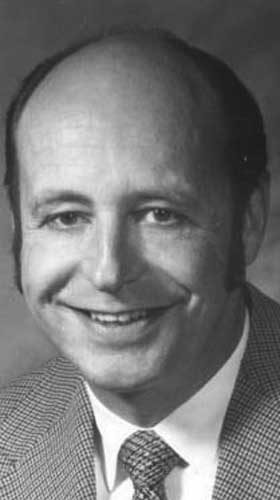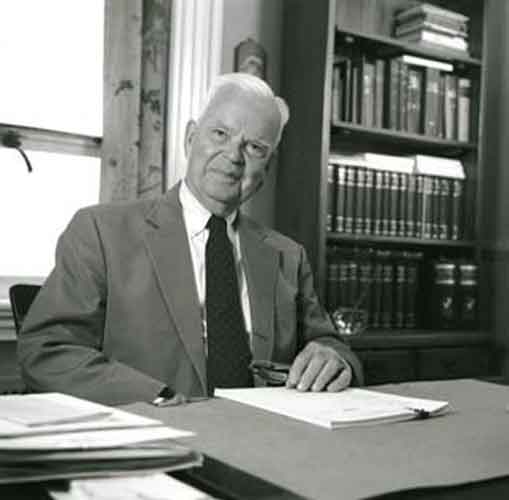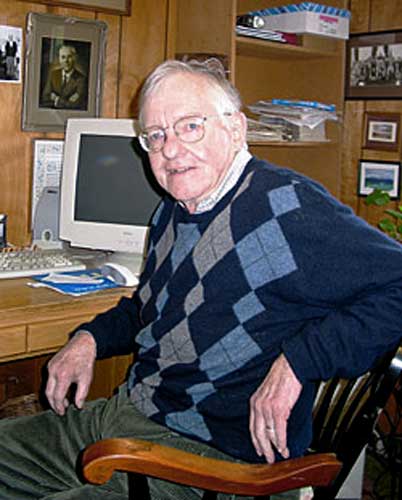



There were a lot of young, true believers in those days. We did a big program in daycare. I did a lot of research on the negative income tax. I met with Jim Tobin, who is really the father . . . . It’s now known as the earned income tax credit, but in those days it was called the negative income tax. And I was a true believer on the negative income tax. And we wanted to start a statewide experiment, which actually got as far as my father saying he would support it. It never happened. Probably just as well because there was no way to manage the numbers. We didn’t have computers in those days, and how exactly it would be administered . . . .Who knew?
I can remember two women walking into my office—both Republicans, I think, or one of them was, anyway, and they were interested in family planning. Family planning was not talked about almost anywhere as far as I could tell in Vermont, as a government responsibility. And these two women were true believers in family planning—thought that was going to solve a lot of our problems. And they wanted to know if I could get their brochures in the welfare office or the Health Department.
I said, “Well, I don’t know. I think so. Let me try.” So I did try. It all was so easy, it wasn’t even funny. Because we had two great guys. We had Bob Aiken, who was Commissioner of Health. And he wasn’t afraid of anybody. And we had John Wackerman, who became a great and dear friend of mine when he was appointed welfare commissioner by Ray Keyser, I think, before Hoff was governor. He was a Republican. He was some kind of a judge. And the more Wackerman learned about welfare, the more liberal he became.
I don’t remember that the church or anybody else had any complaints about it. It was simply something that should be and could be available at relatively no cost. We put together a statewide family planning grant that involved all the five Community Action agencies. Kathy Hoyt, who worked for me at that time, was the one that put that together, and she could get along with everybody, and very soon that program was operating and it has operated successfully since that time.
We started that family planning. We got money for that. We started some clinics, and some services around the state. We managed to get support from the legislature along from the federal government for major amounts of money going into daycare, which included fixing facilities and a lot of training, a lot of work. I think we went from maybe ten licensed daycare centers to around 200—something like that.
Head Start became, of course, kind of the bellwether program. It had advanced funding. It had advanced technical assistance. And somewhere along the line, somebody decided that the best approach to poverty was through the Head Start program, which involved these children and the whole family. Through the program, you would identify problems in the family and theoretically find resources to help. If you had a good idea, my answer was always “yes.”
We had people working in Human Service programs who knew something about human services, who knew about working with people. We had people who worked with each other.
I brought some great people in. Kathy Hoyt—I hired her. When I became state Director, I got a letter; I got a lot of letters. I got about, say, 25 letters–people wanting a job. Most of them I didn’t bother with. I got a letter from this woman, from a little small town down in North Carolina, that had worked for the North Carolina Fund, I think they called it. There was something about the letter that appealed to me. She simply wanted to meet with me. And I said, “okay.”
She and her husband were going to come up, and we were supposed to meet. I think it was at 6 o’clock or 5 o’clock in Montpelier. Well, she was operating with an old-fashioned map, and by 5 o’clock she was in Brattleboro, I think it was. But I agreed to wait, and so she came along somewhere around 7:00 or 7:30. And I sat down with Kathy and we talked. She had a real southern accent. But her experience was good. Her commitment was obvious. I don’t think I ever hired anybody any faster. I hired her in 20 minutes, I think. I’m sure all business types would be horrified at how and why I do things. But I trusted my gut, and in the case of Kathy, of course, that was exactly right. She has gone farther in state government than I ever would or could.
She was important to Howard Dean and to Vermont. First of all she cared. She had this human service experience, and when she talked to the legislature, she was talking from her experience and from knowing what it’s like. I think the most important thing I can say today, ‘cause I repeat this continually, is the Einstein quote, my favorite Einstein quote: “Not everything that counts can be counted, and not everything that can be counted counts.” And our inability to differentiate between qualitative and quantitative factors is what is making it difficult for people to accomplish things.
The other thing that seems to be happening is that people don’t talk to each other anymore. They send email. They send texts. And they don’t talk to people anymore. As administrator, I always felt my job was to create a sense of mission among the people. If the musicians are all going off on a different direction, it probably isn’t very good music. And what’s missing, in my opinion, in government today is that sense of mission that we’re all on the same page. We all really want it to work.
But I can remember the debate around these issues when I met with legislature. There was not an ideological debate in the usual sense. There was a pragmatism that was dominant in both political parties really, that ruled the question of what you do. And a lot of that has been changed in some part in both parties.
In Vermont, we had the birth of what has become the Progressive Party. There was Liberty Union and Progressive, and there may have been one or two others. But, ultimately, most of the people that were in that early group came under the heading of Progressives. Or became Liberal Democrats in some case. Not too many became Republicans. The Republican party seldom didn’t lead in these matters. And they had tremendous influence in the legislature. Not only did they more often than not carry the numbers, but they had experience because they had been in control for so long.
And there were some darn good people there—I gotta tell you. I remember Ed Janeway from down in Windham County, and Bob Gannett from Brattleboro. George Little from Burlington. These are all Republicans that I’m mentioning. Emory Hebard was my very close friend. And Emory Hebard was considered to the right of Genghis Khan by the people who didn’t know him. But I found him to be a pragmatist and one of the most forward thinking people around, In fact, in some regards, later when I went to work for Salmon in the early ‘70s, I had better luck dealing with the Republicans than the Democrats.
When my father was running for governor, I was still director of the anti-poverty program. There was a report in the newspaper that Orleans County had one of the highest neonatal death rates in the nation. This became a cause celebre. So Phil Hoff decided to ask Jack Daley, who was Lieutenant Governor and who was going to run for Governor, that he should take a tour of Orleans County, in the Northeast Kingdom. Jack put it together, and he got the top people from education and welfare and mental health and all–that whole cross section of people. There must have been eight or ten of us who were high rollers, plus another eight or ten newspaper men or women.
So we started a poverty tour. And we worked with Tom Hahn in the Northeast Kingdom, who would identify the places we should stop. And we stopped at some pretty sad and bleak situations. I won’t go into all that.
But what’s interesting, or what’s important, I think, to this, is that when this was all done, everybody got together. I think it was in the Senate, and all the people that had been on the tour were there. And the question came up: okay, what is poverty? And what the solutions were? And each person got up and spoke about the solution [that] was enhancing their program, in almost every case. And all the enhancements that were recommended probably were, in the main, a good idea. Which one was more important than another was left in the lap of the gods.
My own philosophy is you’re poor because you don’t have enough money.
